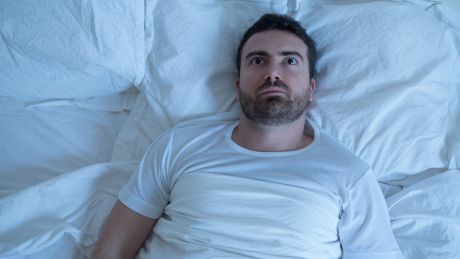Suffering From Sleep Anxiety? Embrace The Lie-In And Stop Measuring Yourself Against Others
Sleep bingeing and napping can help you keep your overall snooze tally in good shape

Sleep, along with diet and exercise, is one of the three key parts of a healthy lifestyle, and it’s perhaps the hardest area to improve. You can decide to go for a run or eat a bowl of broccoli, but however hard you try you can’t force yourself to nod off – and trying really hard to sleep is likely to be counterproductive.
What’s more, the focus on getting eight hours of rest every day can make us more stressed – but it shouldn’t, says Dr Petra Simic, clinical director of Bupa Health Clinics. It’s an unrealistic demand for many people because it ignores the individual nature of sleep.
“Putting a number on how many hours of sleep we should get just isn’t realistic,” says Simic. “When we talk about ‘good’ and ‘bad’ sleep we’re creating fear about something that is as personal to you as a fingerprint.”
Simic suggests that when people think they are not sleeping well, they are basing that on how other people sleep.
“I hear people say all the time that they ‘don’t sleep well’,” says Simic. “When you dig a bit deeper most of the time they are comparing themselves with those closest to them – usually their partners or the people they live with.
“Instead of judging yourself on the habits of others, ask yourself how you feel about your sleep. The amount of sleep someone needs really varies, and we need to think about our individual needs when it comes to getting a good night’s rest.”
See related
- How To Sleep Better
- The Best Sleep Trackers To Help You Catch Some Quality Zzzz
- How To Power Nap At Work – And Why
Missing the amount of sleep you need when it’s not feasible also isn’t necessarily a cause for concern – you can catch up on your snooze when the opportunity arises.
Get the Coach Newsletter
Sign up for workout ideas, training advice, reviews of the latest gear and more.
“Yes, a full night’s sleep every night is the ultimate goal, but for most people, this is an unrealistic expectation because they have children or work late hours,” says Simic. “So when you get the opportunity for a good, long sleep, take it.
“Recharging your batteries with an extra-long sleep at the weekend or during a holiday is something we should embrace and enjoy. Regular sleep binges will help your body to do all the repairing it needs to do, so don’t feel guilty about having an early night or a lie-in.”
Another way to top up your sleep is through napping if you have a schedule that allows you to catch some afternoon Zs.
“It may be hard to fit around work but a short nap of 20-30 minutes can help improve mood, alertness and performance,” says Simic, “especially in the early afternoon when blood sugar levels are low.
“Just remember that naps shouldn’t replace long periods of sleep, because those are when the real work begins and our bodies really get the chance to rejuvenate and repair.
“And like everything to do with rest, it’s entirely personal. Naps may be great for some, but not others – and that’s absolutely fine!”

Nick Harris-Fry is a journalist who has been covering health and fitness since 2015. Nick is an avid runner, covering 70-110km a week, which gives him ample opportunity to test a wide range of running shoes and running gear. He is also the chief tester for fitness trackers and running watches, treadmills and exercise bikes, and workout headphones.
